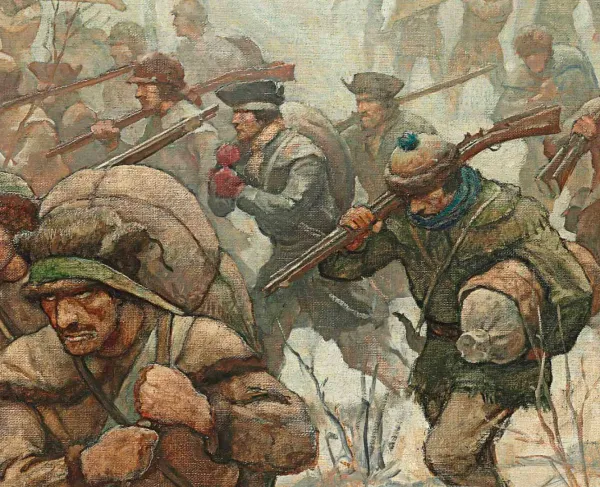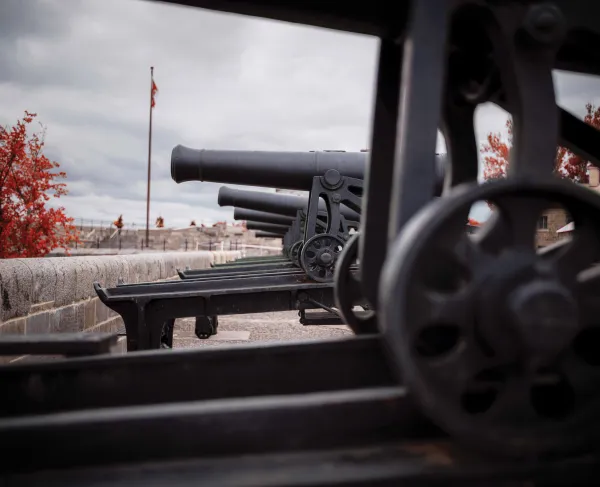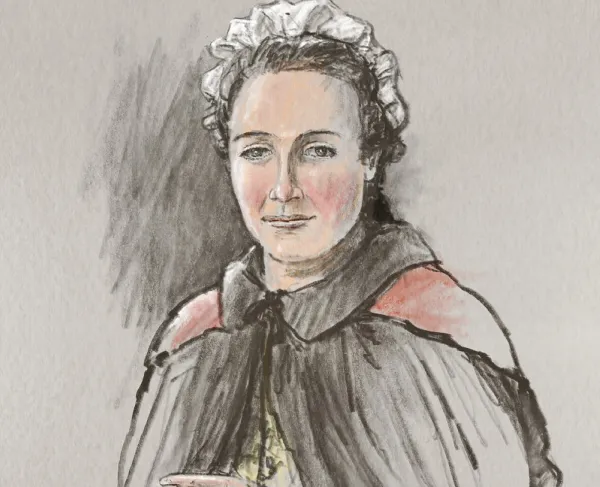A Family Tree Rich in Military Service - Kentucky House Speaker Pro Tempore David Meade

Ancestry and Fold3 have been helping people understand their ancestors and why they fought for causes large and small for decades. Now, Ancestry and Fold3 have joined forces with the American Battlefield Trust, so that you can find the veterans in your family's past and understand their stories and the impact on the generations that followed. You can learn more at https: www.fold3.com/projectregiment.
In addition to this recurring Hallowed Ground column, this partnership has resulted in an exclusive discount for Trust members to subscribe to Ancestry and Fold3! Check your email for this exclusive offer.
A legacy of military service stretching back 250 years has made Kentucky House of Representatives Speaker Pro Tempore David Meade’s family tree as strong and venerable as an aged live oak on a sprawling country estate.
Meade all but needs a spreadsheet to keep track of the 21 veterans he is descended from those who served in the Revolutionary War, the War of 1812 or the Civil War. In the Revolution alone, 10 of Meade’s ancestors joined the Patriot cause. Two were captured, but remarkably, all 10 survived the war and lived long lives well into the 19th century.
And as we prepare to celebrate the 250th anniversary of the American Revolution, a peek into Meade’s ancestral past provides a fascinating glimpse into how our forefathers answered the call of patriotism and helped transform 13 British colonies into the United States of America. And it is also an opportunity to reflect on how connections to the past inspire action by committed preservation champions, like Meade, in the present.
Meade’s seventh-great-grandfather on his mother’s side was Major Adam Heiskell, who joined Virginia’s Frederick County Militia in 1775 and served in General Daniel Morgan’s company of riflemen, marching 500 miles from Winchester, Virginia, to Cambridge, Massachusetts, in just 24 days to join Colonel Benedict Arnold’s disastrous campaign against Quebec. Heiskell was wounded and captured in the doomed American assault on December 31, 1775, but was exchanged in the spring of 1776. He returned to Winchester, where he lived until his death in 1822.
Another seventh-great-grandfather on his mother’s side was Private Thomas Arthur. Arthur served four enlistments with the Bedford County Militia of Virginia and was in the rear guard during the Battle of Camden on August 16, 1780, the worst Patriot defeat of the Revolution. He settled in Kentucky after the war and died in 1833 at age 84.
A maternal sixth-great-grandfather, William Lawson, Sr., was in his 40s when he enrolled in Virginia’s Montgomery County Militia in 1777. Serving as a sergeant, Lawson was one of the legendary “Overmountain Men” who poured out of the backcountry to fight and defeat British loyalists in the Battle of Kings Mountain in South Carolina in 1780. He was mustered out of service soon after and returned home to Scott County, Virginia, where he lived into his mid-90s.
William Lawson, Jr., also served in the Patriot militia on two occasions as a three-month substitute for other men. He was 16 when he entered service for the first time in the fall of 1779, returning again in 1781. He was 87 or 88 when he died in Scott County, Virginia, in 1852.
On his paternal side, Meade’s sixth-great-grandfather, Zachariah Wells, enlisted in the Continental Army cavalry at Loudoun County, Virginia, on July 28, 1776, and rode with legendary Patriot cavalier Henry “Light Horse Harry” Lee. Wells fought at Brandywine and Germantown. He was captured on December 12, 1777, but his misfortune spared him the depravations of Valley Forge. Exchanged in 1778, he returned to Virginia and is believed to have died in 1833 in Kentucky.
Another sixth-great-grandfather was Barnabus Phelix Van Zandt, a private in the New Jersey Militia who served at least eight tours, primarily in his home state. He was 94 when he died in 1850. Yet another sixth-great-grandfather, Captain Michael Gilbert, served in the Virginia Militia for more than four years and saw action in the Battle of Guilford Court House in March 1781.
A further sixth-great-grandfather, Private William Obediah Gragg, was a young man when he witnessed General Charles Cornwallis surrender the British Army at Yorktown, Virginia, in 1781. He died at age 89 in 1847, having earned the nickname “Revolutionary Bill.”
A fifth-great-grandfather on Meade’s father’s side, Nathaniel Pettice Thacker, was a militiaman whose service included guarding British prisoners who surrendered at Saratoga, New York, in 1777. Lastly, another fifth-great-grandfather, William Clemmy Joseph, served in the Maryland Line of the Continental Army for three and a half years before he was honorably discharged in late 1779 or early 1780.





